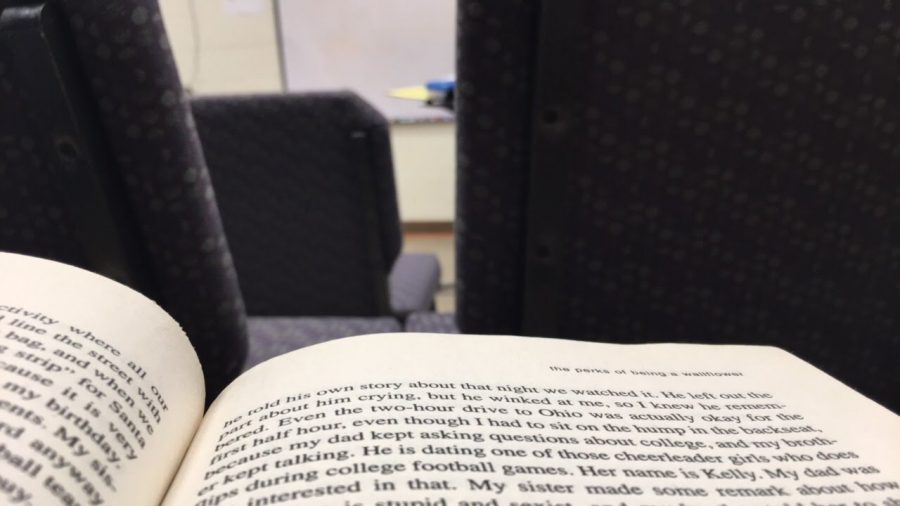The Perks of Being a Highschooler
The book “The Perks of Being a Wallflower” by Stephen Chbosky follows freshman Charlie’s life through many friendships, hardships, and relationships.
September 1, 2017
No book I have ever read has shown the realities of high school as accurately and beautifully as “The Perks of Being a Wallflower” by Stephen Chbosky.
So many of the so-called realistic fiction books I’ve read depicting high school stories haven’t shown the hidden truths that lie in the lives of students, such as families falling apart, crippling self-doubt, or simply not being able to get through another day. Chbosky’s novel encompasses the experiences of every teenager from every school and portrays them as they are, imperfect and afraid. But this book isn’t a pessimistic comment on our failures, but rather a highlight of our strengths and how we continue to succeed. Working past the unique hardships we do have proves far more valuable than being perfect and not needing to learn from our mistakes, and Chbosky makes that known. Even in including the pieces of our lives that can make us miserable, he shows even more so why the good parts are so good.
The strong connection I felt with the main character, Charlie, is unlike any other I’ve encountered. His story is told as an epistolary, with letters addressed to an unnamed friend, who he pours his heart out to while remaining anonymous. Charlie tells how he goes through the trials of a typical freshman, not knowing where he belongs, drifting apart from those he was once close with, and falling in love for the first time. But he also deals with much more colossal stressors, such as the deaths of his best friend as well as aunt, his mental instability rooted in PTSD and depression, and overall the introverted behaviors that lead him to not be very present in his life. Because of the encouragement he gains from his close friends and the events that shape him, Charlie finds happiness in his relationships and uncovers who he truly is, a thoughtful and creative soul. Despite his troubles, Charlie experiences life outside of the books he reads and continues to learn how to be an active participant in his own life.
Having just finished my freshman year at Chamblee, I see so much of what I went through mirrored in Charlie’s story. Since sixth grade I have truly become the epitome of a wallflower, observing the world around me and sometimes living inside my own anxious mind. Like Charlie does over the course of the book, however, my first year in high school helped me truly blossom into someone that I can admire and be proud of. I had a literature teacher who mentored me and strengthened my love of reading and writing like Charlie had his teacher Bill Anderson. I had friends that cared for me no matter what I was going through like Charlie had Patrick and Sam. The fact that I can so greatly relate with these and so many other parts of a fictitious experience speak wonders about the novel and Chbosky’s writing.
This book was revolutionary for me. If it’s possible to have multiple epiphanies in one sitting I definitely accomplished that feat. The story was not only a great read and enthralling but actually made me think about the world around me and those that inhabit it like I was going on the same journey as those in the novel. Finding connections and hope in things as minuscule as a mixtape is empowering and encourages those who feel alone to go out and discover the world for themselves. Issues in high school, as monumental as they may seem, are not the end, and so many good things come out of it. Whatever Chbosky meant while writing this novel, the message it sent to me is clear: It does and will get better.











